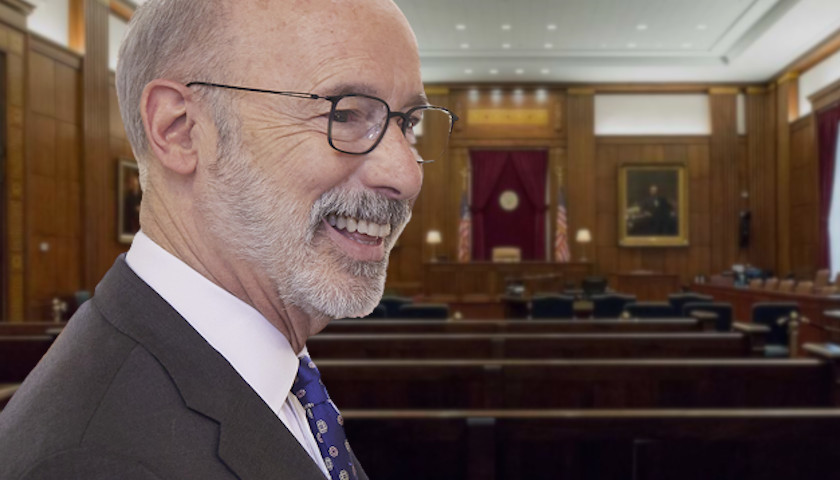Pennsylvania’s Commonwealth Court this week blocked the state’s entry into the Regional Greenhouse Gas Initiative (RGGI), an 11-state compact requiring de facto taxation of power plants’ carbon emissions.
Governor Tom Wolf (D) tried to affect Pennsylvania’s participation in the initiative by issuing an executive order in 2019, thus neglecting to seek approval of the Republican-led General Assembly. The court’s new opinion comes one day after the state Senate failed to override the governor’s veto of legislation letting the General Assembly end the state’s membership in the compact. Legislative leaders have argued that the governor’s unilateral action violated the state Constitution and was heartened upon hearing of the judges’ decision.
“Governor Wolf’s approach on this issue runs contrary to the Constitution by attempting to usurp powers that are vested in the General Assembly,” state Senate President Pro Tempore Jake Corman (R-Bellefonte) said in a joint statement with fellow GOP Senate leaders. “We cannot allow him to change the rules just because he may not like the outcome. We appreciate the court putting the brakes on this troubled policy until all of the legal issues can be considered on their merits.”
The governor and fellow Democrats denounced the ruling.
In a Twitter post yesterday, Wolf wrote, “I remain committed to PA’s participation in RGGI.” He asserted that polling indicates 72 percent of Pennsylvanians support the initiative. He further claimed that its implementation would reduce the state’s carbon-dioxide discharge by 227 million tons by 2030, thus helping to counter global warming, and that it would create 30,000 jobs by that time through greater renewable energy development.
Opponents of RGGI warn that its consequences for Pennsylvania’s economy will be deleterious and that its benefit to the environment will be mild at best. The CO2 Coalition, a national organization chaired by Princeton physicist William Happer, has observed that RGGI could cost the state’s economy $7.7 billion annually and more than 22,000 jobs. And, in floor remarks earlier this week, State Senator Wayne Langerholc (R-Clearfield) mentioned that the Keystone State’s emissions have decreased by 72.3 million tons in the last dozen years while all other RGGI states have seen their cumulative discharge fall by 79.6 million tons.
GOP lawmakers contend that alternative means exist when it comes to mitigating climate change. State Representative Jim Struzzi (R-Homer City) and State Senator Gene Yaw (R-Williamsport) have offered legislation to lessen carbon-dioxide discharge through “carbon capture” technologies, a strategy in which the Wolf administration has shown middling interest.
Republicans hold a five-to-three majority on the Commonwealth Court. RGGI opponents could find their fortunes dimming once an appeal to this week’s decision reached the state Supreme Court on which Democrats enjoy a five-to-two majority.
– – –
Bradley Vasoli is managing editor of The Pennsylvania Daily Star. Follow Brad on Twitter at @BVasoli. Email tips to [email protected].
Photo “Tom Wolf” by Tom Wolf. CC BY 2.0.





